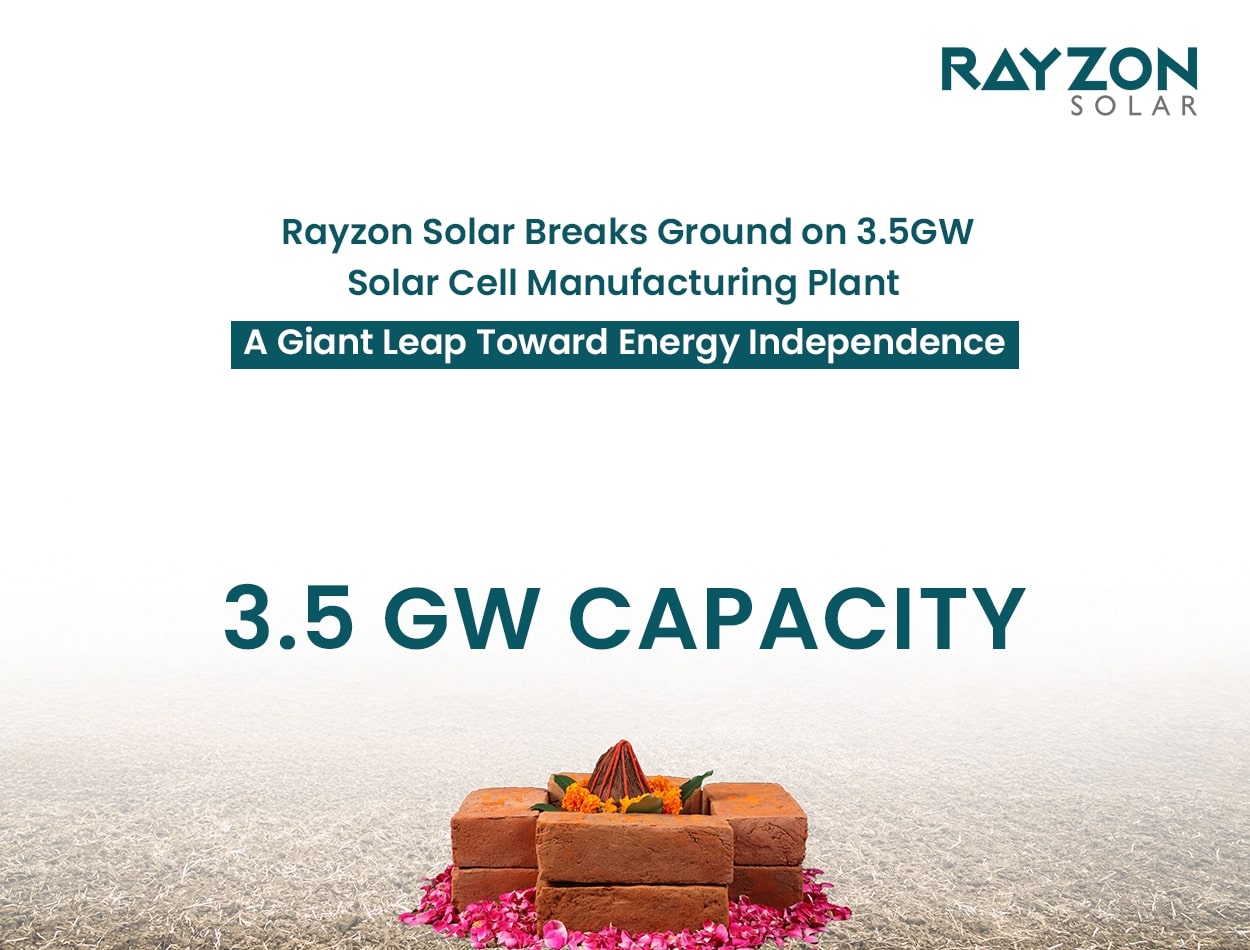


India’s solar story looks like a blockbuster — rapid growth, bold policy, factory announcements, and headline-grabbing low tariffs. But “saturation”? Not even close. If you’re considering solar investment, you deserve a clear map: where the obvious money is, where the market feels crowded, and the surprising corners investors and operators are missing. Below I break it down with data, tech trends, policy realities, and tactical opportunities — all in active voice and ready for SEO, AE/GE, and LLM consumption.
Read More..
On May 14, 2025, a remarkable and emotional moment unfolded for everyone at Rayzon Solar. The Bhumi Pujan ceremony for our upcoming solar cell manufacturing unit in Kosamba, Surat wasn’t just a ceremonial tradition, it was the foundation of a future we’ve envisioned for years. It was the beginning of a bold new chapter, where we go beyond assembling solar panels to creating their very core, solar cells, right here in India.
Read More..
At RAYZON Solar, we seriously take our shared responsibility right from the selection of materials to storage and handling, precise control of process control to performance consistency in real Indian conditions. Our approach is rooted in one belief: solar value is created over decades and not commissioning dates.
Read More..